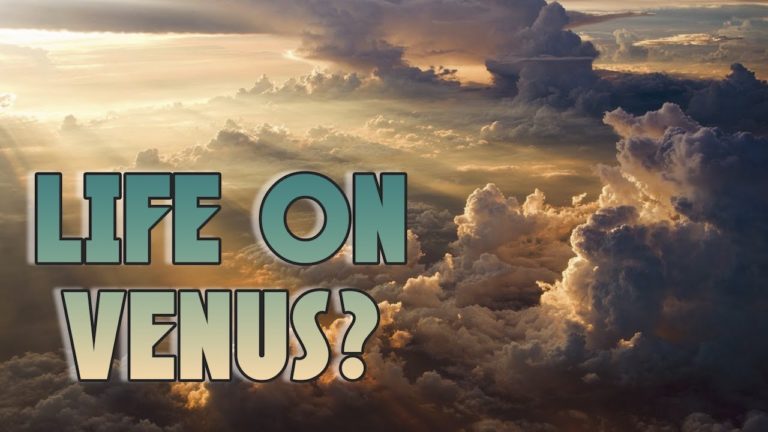The announcement of the detection of a possible biomarker in the atmosphere of Venus has shook up the field of astrobiology and grabbed headlines across the world. Today, we explore why Venus could plausibly host life, how this detection was made, and whether it really means that we’ve finally found extraterrestrial life. Written and presented by Prof Kipping, featuring guest Dr Caleb Scharf.
You can now support our research program and the Cool Worlds Lab at Columbia University: https://www.coolworldslab.com/support
Thank-you to Kevin Clark, Tom Widdowson, Denny Smith, Stephanie Hackley, Mark Sloan, Laura Sanborn, Kolos Kantor, Patrick Herman, Abel Aganbegyan, Claudio Bottaccini, Daniel Brunk, Douglas Daughaday, Scott Fincher, James Kindred, Andrew Jones, Jason Allen, Steven Baldwin, Jason Black, Stuart Brownlee, Shivam Chaturvedi, David Denholm, Tim Dorais, Glen Downton, Eneko Urrestarazu, Gordon Fulton, Sean Griffiths, Peter Halloran, John Jurcevic, Niklas Kildal, Jack Kobernick, Wes Kobernick, Valeri Kremer, Marc Lijoi, Sheri Loftin, Branden Loizides, Anatoliy Maslyanchuk, Blair Matson, Ocean Mcintyre, Laini Mitchell, Jeffrey Needle, André Pelletier, Juan Rivillas, Bret Robinson, Zenith Star, Lauren Steely, Ernest Stefan-Matyus, Mark Steven, Elena West, Barrett York, Tristan Zajonc, Preetumsingh Gowd, Shaun Kelsey, Chuck Wolfred, David Vennel, Emre Dessoi, Fahid Naeem, Francisco Rebolledo, Hauke Laging, James Falls, Jon Adams, Michael Gremillion, Pierce Rutherford, Trev Kline, Tristan Leger, Lasse Skov & Takashi Hanai.
::Paper announcing the detection::
► Greaves, J. et al. (2020), “Phosphine gas in the cloud decks of Venus”, Nature Astronomy: https://doi.org/10.1038/s41550-020-1174-4
::Other references used::
► Sousa-Silva. C. et al. (2019), “Phosphine as a Biosignature Gas in Exoplanet Atmosphere”,
Astrobiology, 20, 235: https://arxiv.org/abs/1910.05224
► Way, M. et al. (2016), “Was Venus the First Habitable World of our Solar System?”, Geophysical Research Letters, 43, 8376: https://arxiv.org/abs/1608.00706
► Moses, J. et al. (2005), “Photochemistry and diffusion in Jupiter’s stratosphere: Constraints from ISO observations and comparisons with other giant planets”, J. Geophys. Res., 110, E08001: https://doi.org/doi:10.1029/2005JE002411
::Movies/TV scenes used::
► Roving Mars (2006) Buena Vista Pictures
► Exploring Venus (2019) Magellan TV
► Star Trek (1966) Paramount Pictures
::Other video footage used::
► ALMA timelapse by ESO/José Francisco Salgado: https://youtu.be/Tn8Udphi6JA
► Venus UV footage by Akatsuki/JAXA: https://www.isas.jaxa.jp/en/topics/002099.html
► Bill Clinton footage form the Presidential Library & White House Television
► Galaxies fly through by SDSS/Miguel Aragon/Mark Subbarao/Alex Szalay: https://youtu.be/08LBltePDZw
::Music::
Music used is licensed via Creative Commons (CC) Attribution License (https://creativecommons.org/licenses/by/4.0/)
► “Fusion” by Indive licensed licensed under a CC Attribution license: https://indive.bandcamp.com
► “Trace Correction” by Indive licensed licensed under a CC Attribution license: https://indive.bandcamp.com
::Playlists For Channel::
Latest Cool Worlds Videos ► http://bit.ly/NewCoolWorlds
Cool Worlds Research ► http://bit.ly/CoolWorldsResearch
Guest Videos ► http://bit.ly/CoolWorldsGuests
Q&A Videos ► http://bit.ly/CoolWorldsQA
Science of TV/Film ► http://bit.ly/ScienceMovies
::Follow us::
SUBSCRIBE to the channel http://bit.ly/CoolWorldsSubscribe
Cool Worlds Lab http://www.coolworldslab.com
Twitter https://twitter.com/david_kipping
THANKS FOR WATCHING!!
#VenusLife #Venusians #CoolWorlds


